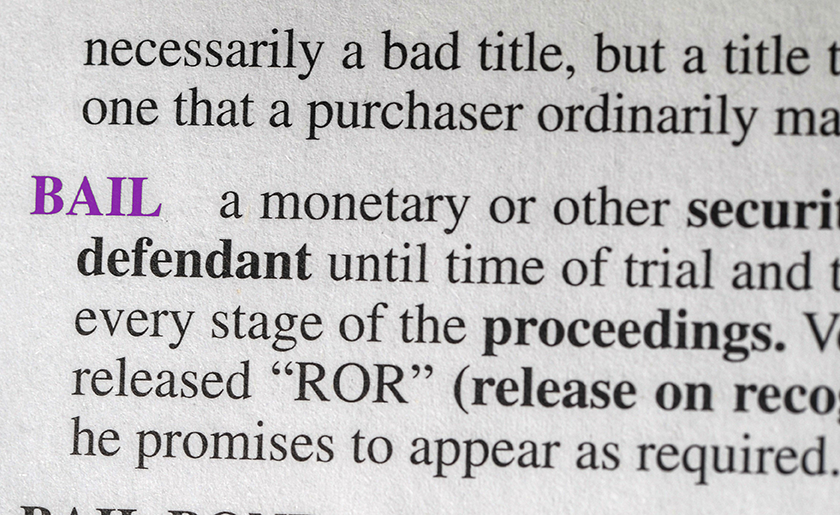
This glossary should help demystify the jargon often encountered when dealing with bail bonds. Keep it handy as a quick reference guide during what can be a complex and stressful process.
Bail: A financial guarantee that a defendant will return to court for all required hearings and proceedings.
Bail Amount: The sum of money set by the court that must be paid to secure a defendant’s temporary release from custody.
Bail Bondsman: A licensed individual or agency that provides surety bonds to defendants in exchange for a fee.
Bail Schedule: A predetermined list of bail amounts corresponding to specific offenses, used as a guideline by judges.
Cash Bail: A type of bail where the full amount is paid in cash to the court.
Collateral: Assets such as property or valuables used to secure a bail bond.
Co-Signer: An individual who agrees to take responsibility for the bail bond and the defendant’s court appearances, also known as an indemnitor.
Defendant: The person who has been arrested and charged with a crime.
Exoneration: The removal of all bail responsibilities, usually occurring when a case is concluded.
Failure to Appear (FTA): When a defendant does not show up for a scheduled court date, leading to the forfeiture of the bail bond.
Forfeiture: The loss of the bail amount when a defendant fails to appear in court as required.
Indemnitor: See Co-Signer.
Own Recognizance (ROR): Release from custody without the need for bail, based on the defendant’s promise to return to court.
Premium: The non-refundable fee paid to a bail bondsman, usually a percentage of the total bail amount.
Property Bond: A type of bail where property is used as collateral to secure the defendant’s release.
Remand: When a defendant is held in custody without the option for bail.
Secured Bond: A bail bond backed by collateral such as property or other assets.
Surety Bond: A bail bond secured through a bail bondsman, who pledges to pay the full bail amount if the defendant fails to appear in court.
Unsecured Bond: A type of bond where the defendant is released on their signature alone, agreeing to pay a set amount if they fail to appear in court.
Warrant: A legal document authorizing law enforcement to arrest an individual for a specific offense.
Arrested? Allstate Bail Bond is Here For You
Being arrested can be a stressful and overwhelming experience, but you don’t have to navigate it alone. Allstate Bail Bond is here to provide you with fast, reliable, and professional bail bond services in Amarillo, Texas. Contact us today at (806) 379-6699.
Whether you or a loved one has been arrested, our experienced team is available 24/7 to help you through the bail process and ensure a swift release from jail. We understand the urgency of the situation and work quickly to secure your freedom, offering affordable payment plans and guidance every step of the way. Trust Allstate Bail Bond to stand by your side and provide the support you need during this difficult time.

